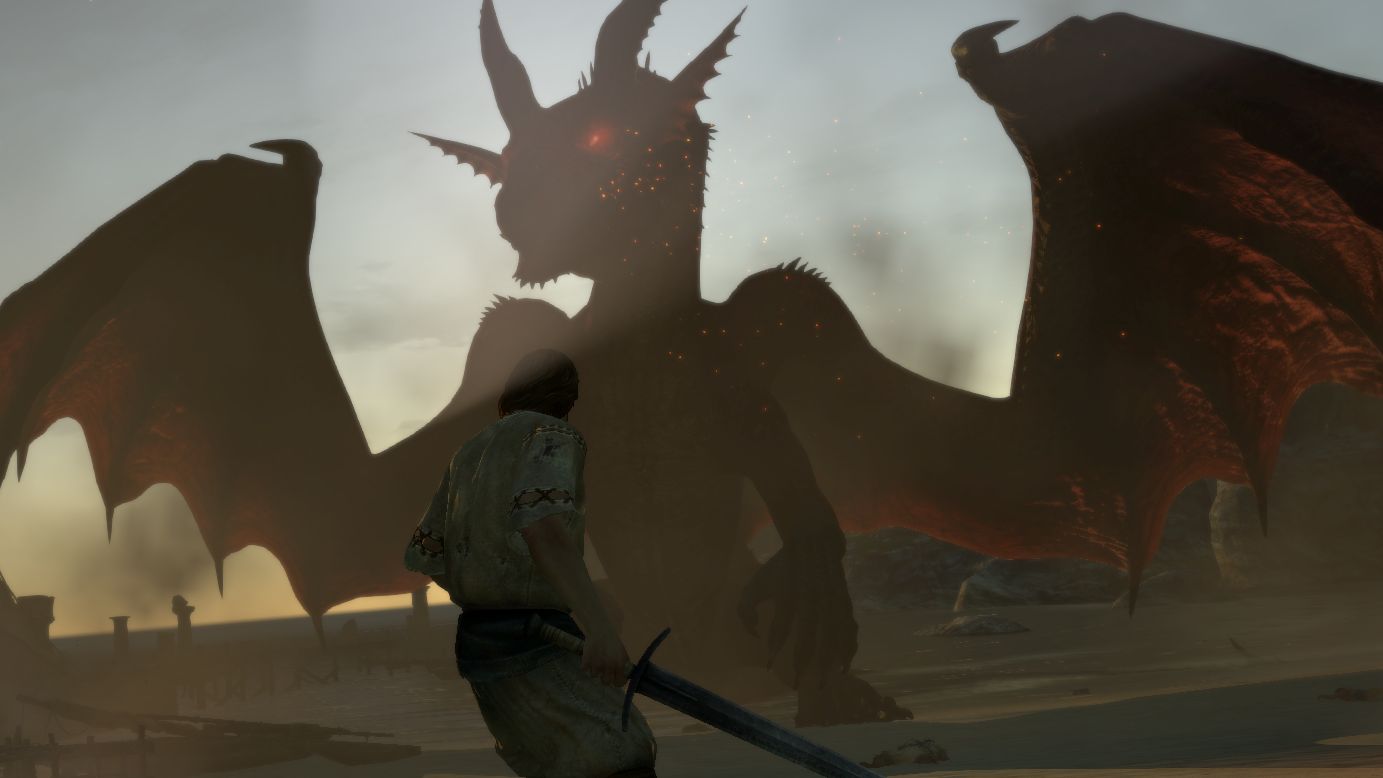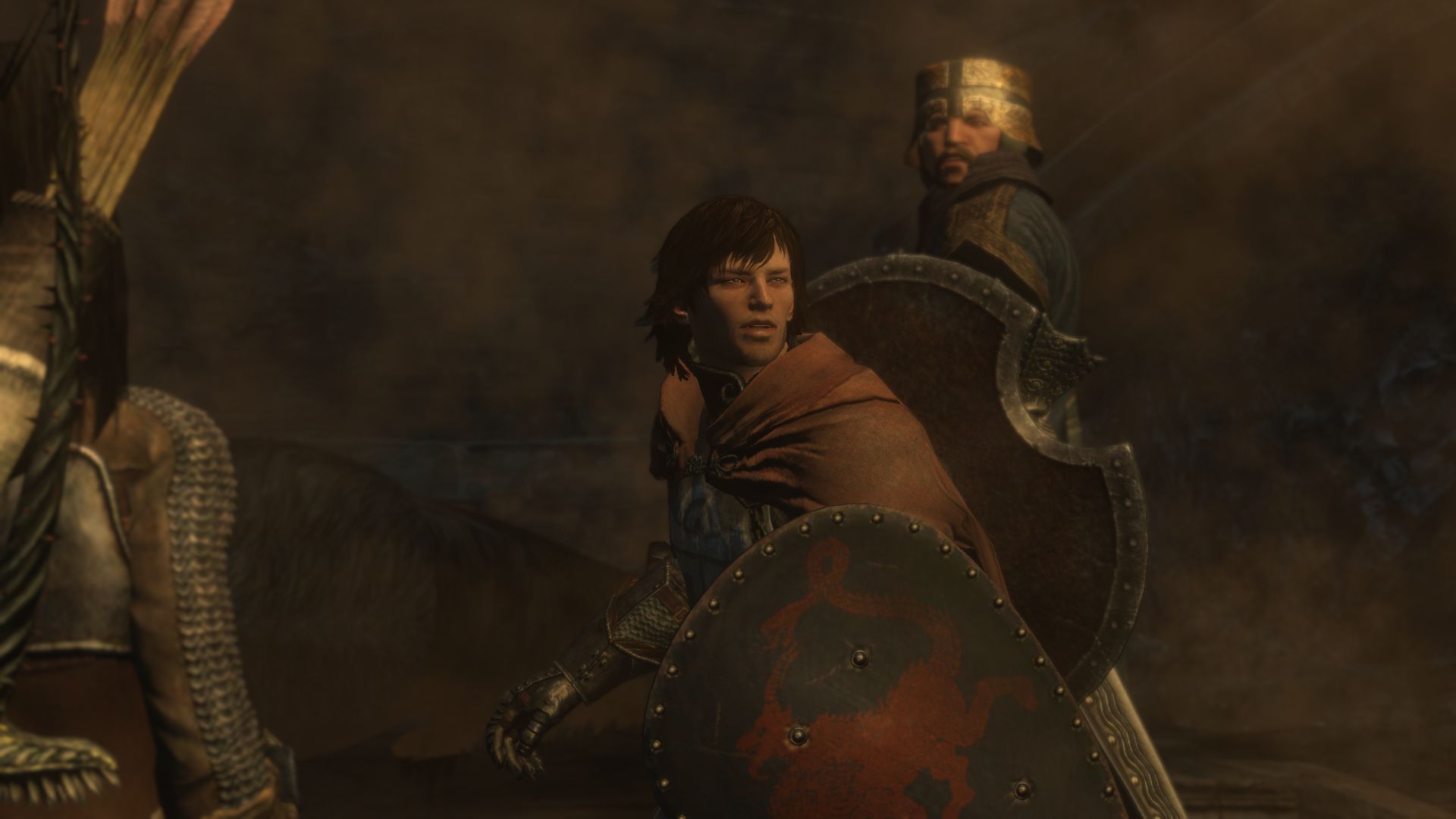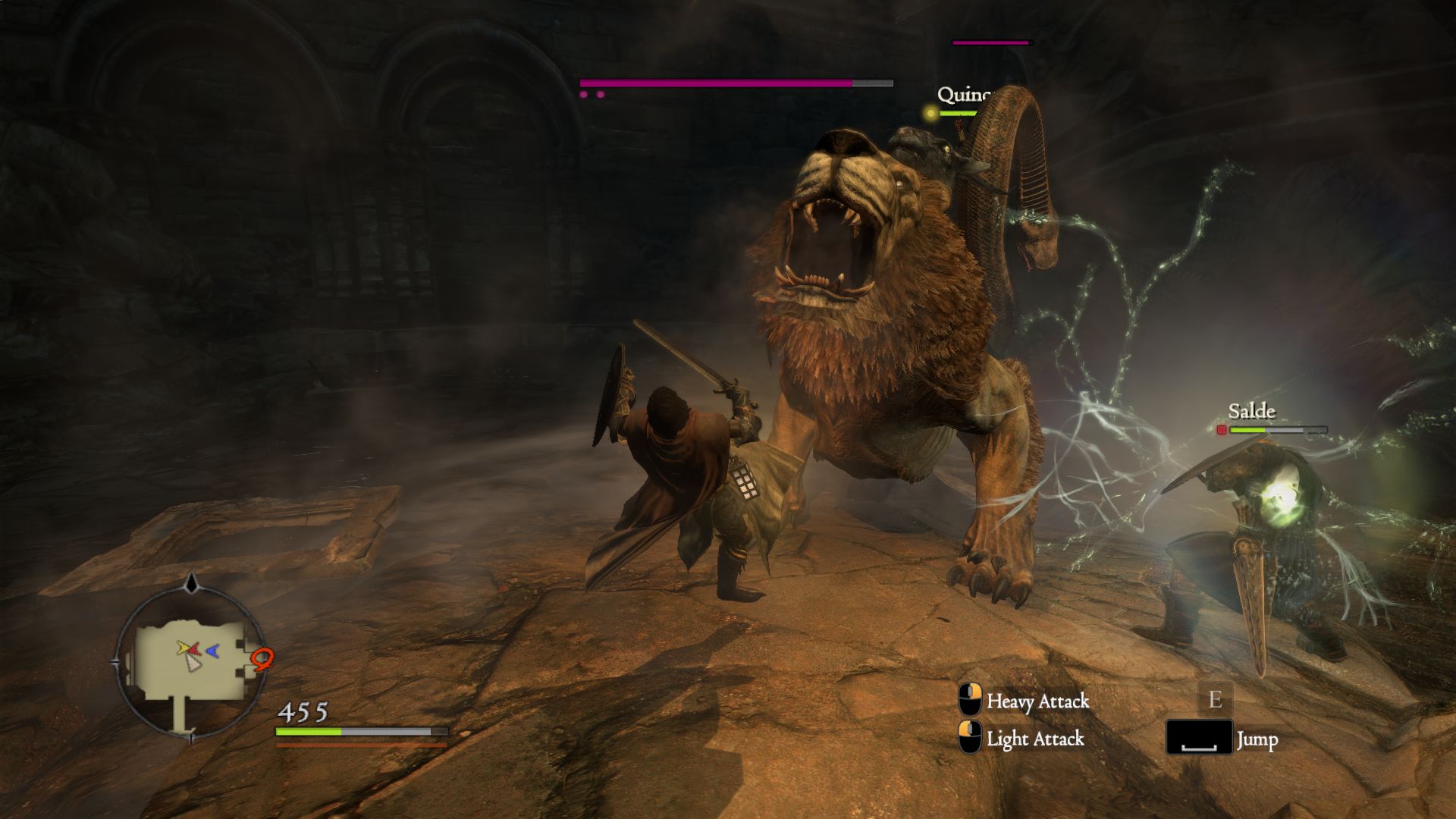Dragon's Dogma: an original take on the high-fantasy RPG

A dragon attacks your village and you bravely face it with a rusty sword. As you hack hopelessly at its legs, it plucks out your heart, tossing it into its mouth before flying away. You lie dead on the beach—or so it seems. Waking up, you discover you’re The Arisen: a legendary warrior destined to drive the beast back to whence it came. Tough break.
Yes, this is a fantasy RPG, full of beards, wizards, jerkins, and goblins. But it’s by a Japanese studio—led by Devil May Cry director Hideaki Itsuno—and isn’t the fusty old swords-and-elves games you might be expecting. It takes hokey Western fantasy tropes and injects them with humour, personality and some clever game design. Dragon’s Dogma was released three years ago on consoles to great critical acclaim, but it always felt like a game that belonged on PC—and now, finally, it’s coming.
There are perks to being The Arisen, including the ability to summon Pawns—bodyguards who exist solely to aid you in battle. Early on you create a main Pawn, who’ll follow you throughout. I created a mage called Queen to accompany my tank-like fighter. She casts a spell in battle that makes my sword burn with magical fire and heals me. She’s awesome.

Other Pawns can journey with you too, but only temporarily. You can create them yourself, choose from a selection of computer-generated Pawns, or—and here’s the best bit—download them from other players. Pawns who travel with you gain knowledge of the places you visit and, importantly, monsters you defeat. So if you kill a troll, anyone who downloads the Pawns who helped you defeat it will have its weakness revealed. But the more experienced a Pawn is, the more expensive it is to hire. It’s a unique system.
And you’ll need help from Pawns, because Dragon’s Dogma is tough. There’s no indication if a part of the world is beyond your current skills, giving the game a genuine sense of danger and adventure. You’ll enter a cave and get wiped out in seconds by some unholy monster. But, later, you’ll come back with Pawns who know its weakness and better abilities, and make short work of it. This lack of hand-holding is reminiscent of Dark Souls, but it’s not quite as punishing.
The combat also has echoes of Dark Souls, emphasising careful parrying and blocking. But unique to Dragon’s Dogma is the ability to climb on large enemies. You can shimmy up a troll’s leg and hack away at its head as it tries to shake you off. Pawns can grab smaller enemies and hold them, giving you a moment to attack. Battles are tactical and any attempts to dumbly hack-and-slash your way through the game will be met with a swift, unceremonious death.

Japanese games often suffer from bad PC ports, but the preview version of Dragon’s Dogma I played boasts a broad selection of graphics options, plays at a steady 60fps, supports high resolutions, and gets rid of the black bars that plagued the console version. I noticed some shadow glitches while using a lamp to light dark areas, but hopefully these will be fixed. I wouldn’t say it was a pretty game but the art and animation are so full of character I don’t mind its low-poly models and slightly blurry textures too much.
Keep up to date with the most important stories and the best deals, as picked by the PC Gamer team.
But while Dragon’s Dogma isn’t a visual powerhouse, it is one of the most imaginative action RPGs released in recent years. The Pawn system is a stroke of genius, the combat is satisfying and challenging, with a kinetic, weighty feel to it, and a curiously Japanese sense of humour runs throughout. It’s heartening to see the game arrive on PC in such fine shape. That dragon’s days are numbered.
If it’s set in space, Andy will probably write about it. He loves sci-fi, adventure games, taking screenshots, Twin Peaks, weird sims, Alien: Isolation, and anything with a good story.


